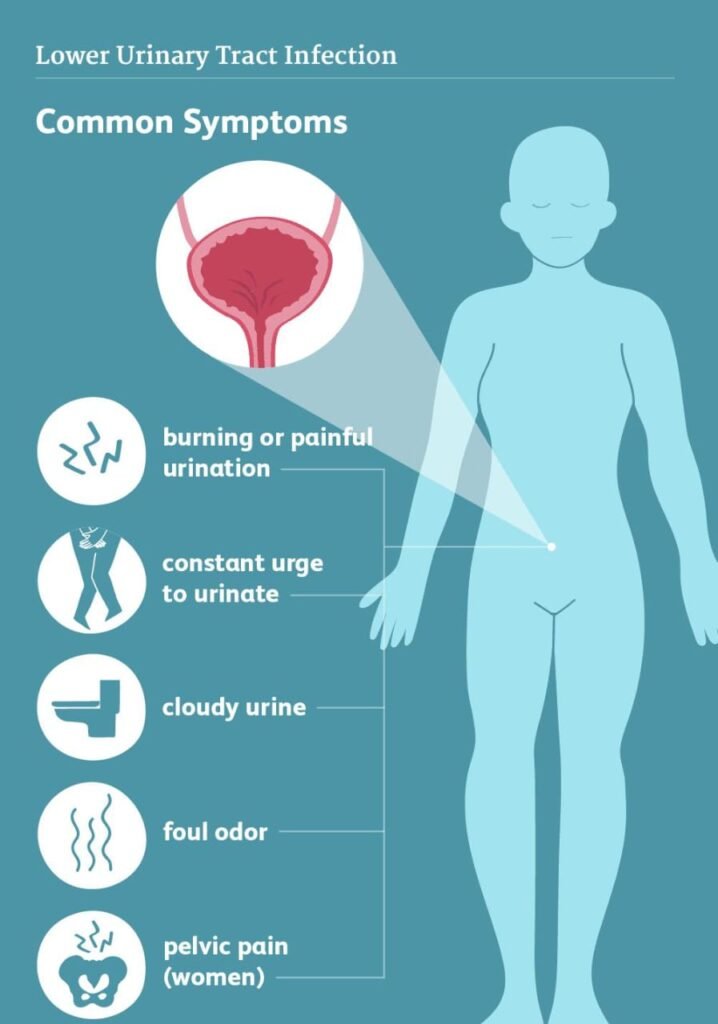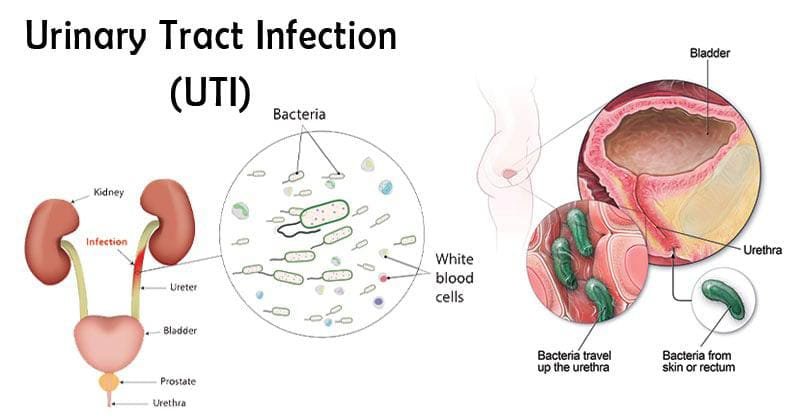URINARY TRACT DISEASE KE BARE ME JANIYE
Urinary tract disease refers to infections or conditions affecting any part of the urinary system, including the kidneys, bladder, ureters, and urethra. Common symptoms include pain during urination, frequent urination, and cloudy or bloody urine. It’s important to seek medical attention for proper diagnosis and treatment.
How to treat
URINARY TRACT DISEASE KE BARE ME JANIYE
How to treat
Treatment for urinary tract diseases depends on the specific condition. Common approaches include antibiotics for bacterial infections, pain relievers, and increased fluid intake to flush out bacteria. In more severe cases, hospitalization or surgical intervention may be necessary. Always consult a healthcare professional for personalized advice based on the specific symptoms and diagnosiS

Symptoms
Symptoms
Common symptoms of urinary tract disease include:
- Pain or burning sensation during urination.
- Frequent urge to urinate.
- Cloudy or foul-smelling urine.
- Blood in the urine.
- Lower abdominal pain or discomfort.
- Fever or chills (indicating a possible infection).
- Pain or discomfort in the back or side (suggesting kidney involvement).
If you experience any of these symptoms, it’s important to consult a healthcare professional for proper evaluation and treatment.
Which doctor I go to consult thIS
For urinary tract issues, you may want to consult a urologist. Urologists specialize in the diagnosis and treatment of conditions related to the urinary tract and male reproductive system. If you’re unsure, you can start by seeing your primary care physician, who can then refer you to a specialist if needed
Prevention
Prevention
To help prevent urinary tract issues:
- Stay hydrated: Drink plenty of water to flush out bacteria and promote overall urinary health.
- Practice good hygiene: Wipe front to back after using the toilet to prevent the spread of bacteria.
- Empty your bladder regularly: Don’t hold urine for prolonged periods.
- Urinate after sexual activity: This helps flush out any bacteria that may have entered the urethra.
- Avoid irritating feminine products: Certain products can disrupt the natural balance of the urinary tract.
- Choose loose-fitting clothing: Breathable fabrics can help prevent moisture buildup in the genital area.
- Maintain a healthy diet: Eat foods rich in antioxidants and nutrients to support overall health.
If you have recurrent issues, consult a healthcare professional for personalized advice.
Medication
Medication
The choice of medication for urinary tract issues depends on the specific condition. Commonly prescribed medications include:
- Antibiotics: Used to treat bacterial infections such as urinary tract infections (UTIs).
- Pain relievers: Help alleviate discomfort or pain during urination.
- Antispasmodics: Used to relax the bladder muscles, relieving symptoms like urgency and frequency.
- Alpha-blockers: Sometimes prescribed for conditions like enlarged prostate to improve urine flow.
- Anti-inflammatory drugs: May be used to reduce inflammation in certain conditions.
It’s crucial to consult with a healthcare professional who can determine the most appropriate medication based on your symptoms and diagnosis.
Risk factor
Risk factor
Several factors can increase the risk of developing urinary tract issues:
- Gender: Women are generally more prone to urinary tract infections due to a shorter urethra.
- Age: Elderly individuals may face increased risk due to weakened immune function or age-related changes.
- Sexual activity: Having multiple sexual partners or engaging in certain sexual practices can elevate the risk of infections.
- Urinary tract abnormalities: Structural issues in the urinary tract can make infections more likely.
- Urinary retention: Inability to empty the bladder completely can increase infection risk.
- Use of catheters: Indwelling catheters can introduce bacteria, leading to infections.
- Obstruction: Any blockage in the urinary tract can impede normal urine flow and contribute to issues.
Understanding and addressing these risk factors can help in prevention and management.
Cure
Cure
The approach to curing urinary tract issues depends on the specific condition. In many cases, bacterial infections like urinary tract infections (UTIs) can be cured with a course of antibiotics prescribed by a healthcare professional. However, chronic or recurrent conditions may require ongoing management rather than a permanent cure.
For other conditions like kidney stones or structural abnormalities, treatment may involve lifestyle changes, medications, or, in some cases, surgical interventions. It’s important to consult with a healthcare professional for an accurate diagnosis and appropriate treatment plan based on the specific urinary tract issue.


I am a content writer I have experience been writing news and blog articles for 5 years.